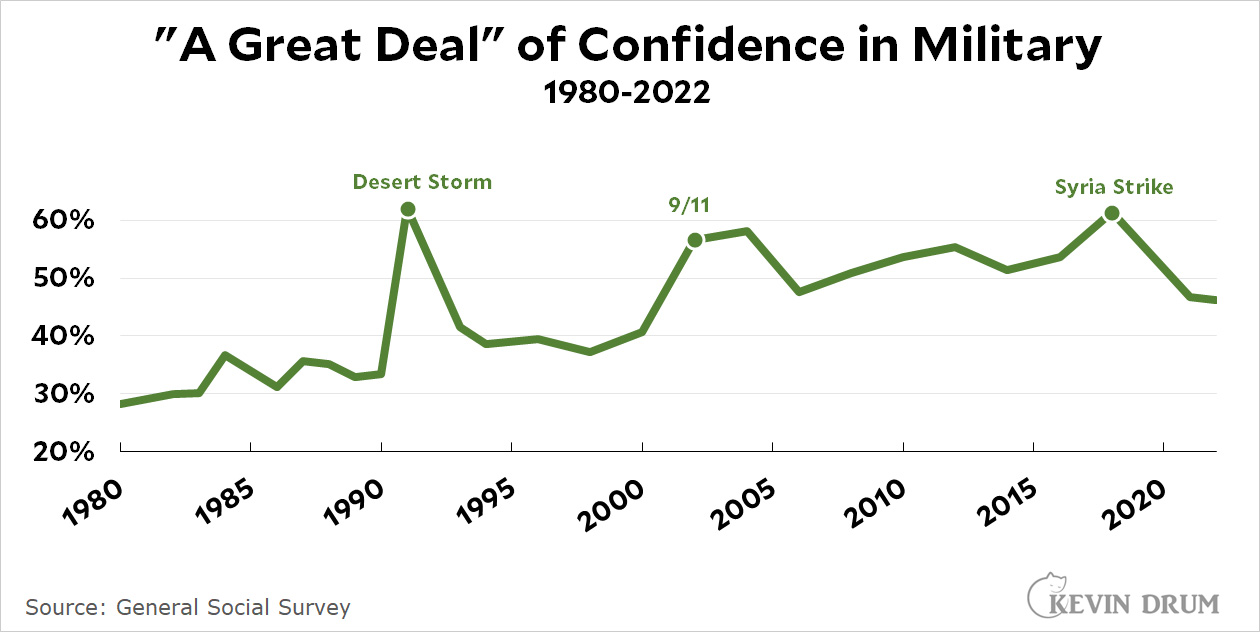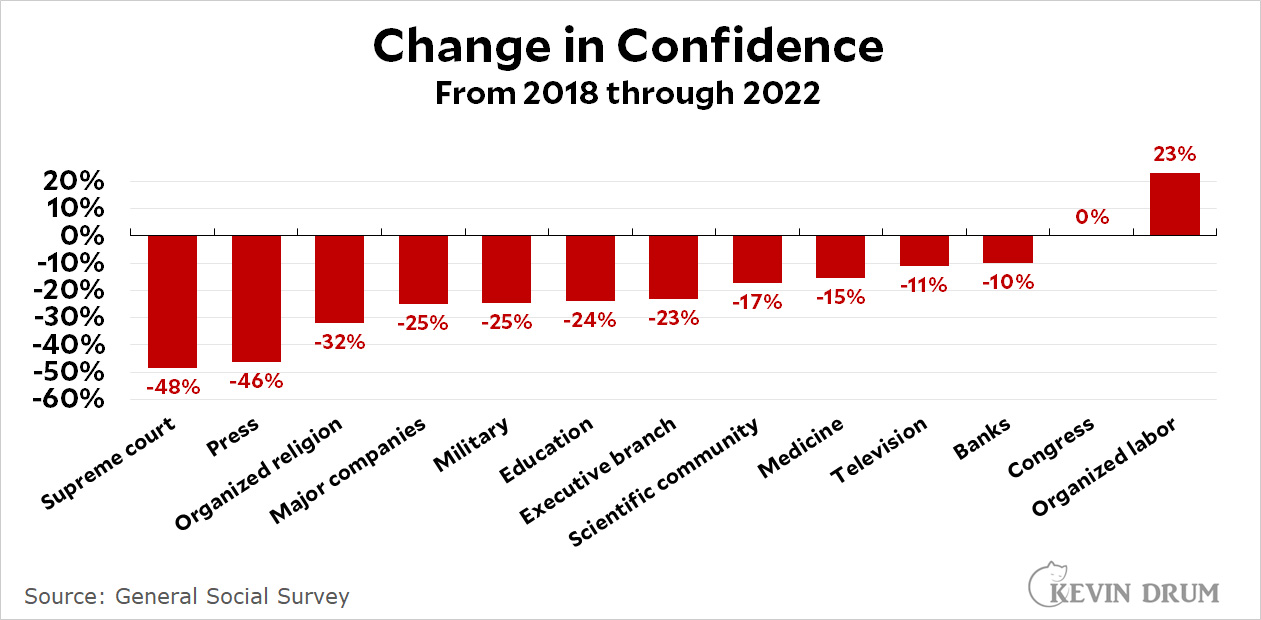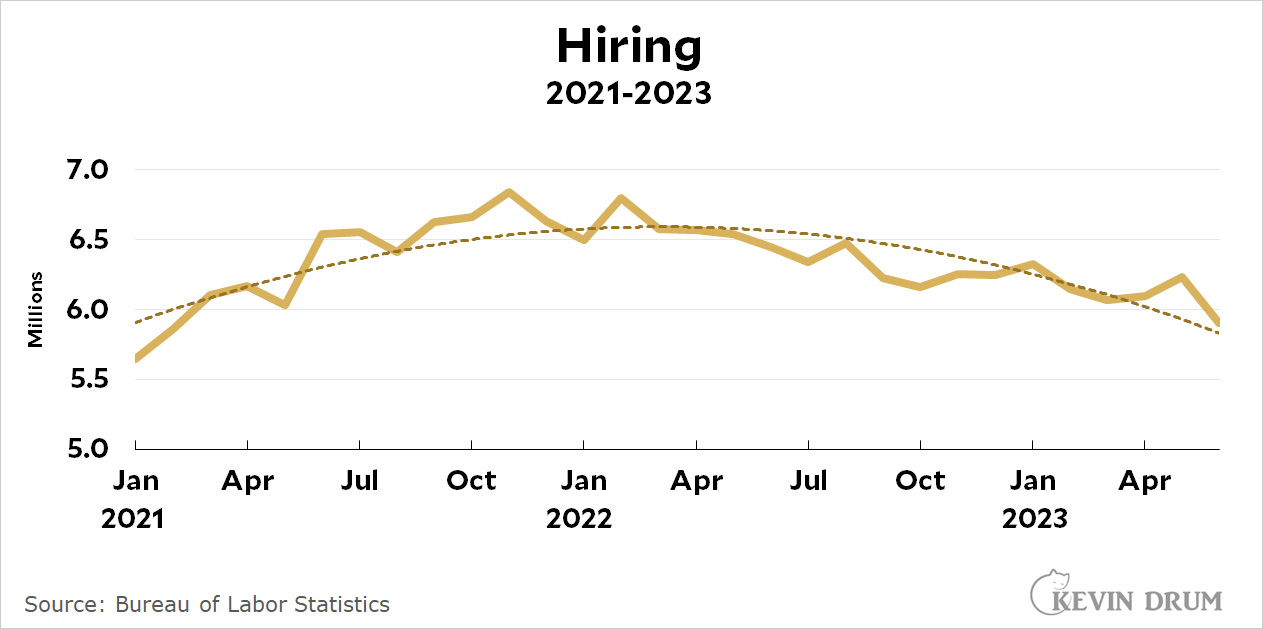American workers—especially fresh graduates—aren't learning the skills they need for today's marketplace. How do I know this? Because the Wall Street Journal tells me so:
The New Hires of 2023 Are Unprepared for Work
The knock-on effect of years of remote learning during the pandemic is gumming up workplaces around the country....The shortcomings run the gamut from general knowledge, including how to make change at a register, to soft skills such as working with others. Employers are spending more time and resources searching for candidates and often lowering expectations when they hire. Then they are spending millions to fix new employees’ lack of basic skills.
This could be true. On the other hand, employers have been griping forever about the lousy skills of kids these days. For example:
- 2002 - Death, taxes, and the skilled labor shortage
- 2006 - Skill Shortages Create a Perfect Storm in the Labor Pool
- 2009 - Lack of computer skills foils many job-seekers
- 2010 - Lack of skilled workers threatens recovery
- 2014 - Employers Aren’t Just Whining – the “Skills Gap” Is Real
- 2015 - Why America Has a Shortage of Skilled Workers
- 2018 - The $8.5 Trillion Talent Shortage
- 2019 - Understanding the skills gap—and what employers can do about it
- 2021 - Nearly half of American companies say they are short on skilled workers
Maybe remote learning during the pandemic really has generated a cohort of undertrained new workers. Or, just maybe, the kids are pretty much the same as always, while employers are annoyed as always that entry-level workers have to learn stuff. It's your call.








